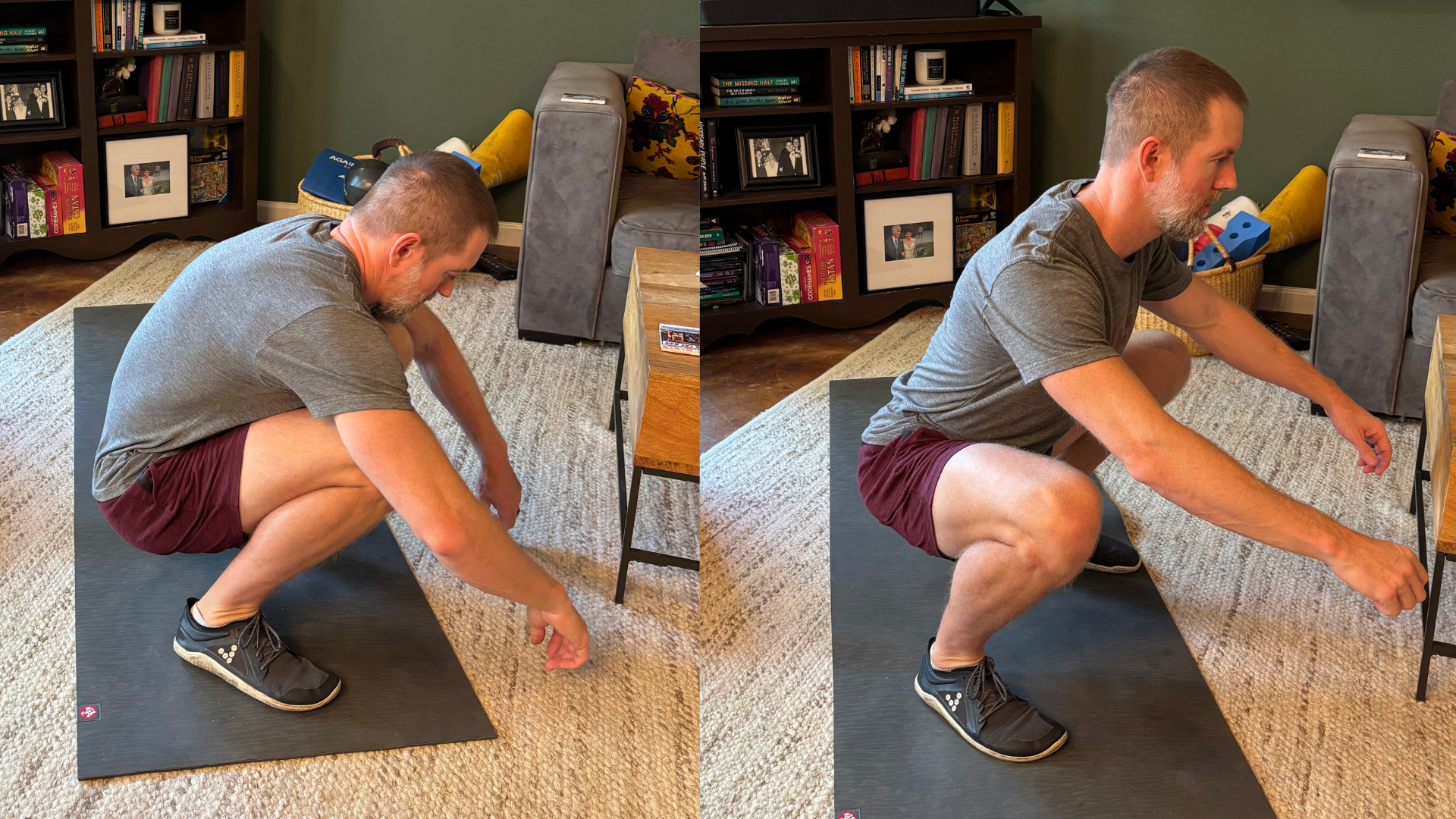Surrounded By Fat-Promoting Norms
Written by Kyle Ligon - MovementLink.FIT Head Coach
Being overweight increases your risk for Pregnancy Problems, Type 2 Diabetes, High Blood Pressure, Heart Disease, Stroke, Sleep Apnea, Metabolic Syndrome, Fatty Liver Disease, Osteoarthritis, Gallbladder Diseases, Cancer, Kidney Disease, and mental health problems such as Depression (1). Talking about people’s weight is a very sensitive topic, so I want to be clear that when I am talk about the health implications of being overweight that I do not think those health implications detract from anyone’s value as a person. I wholeheartedly believe that someone can be overweight, look beautiful, be a wonderful person, and do amazing things in this world. But, in the same breath, I also believe that being overweight comes with dramatically elevated health risks. I hope the followers of MovementLink.FIT understand my passion for improving people’s body composition stems from from the health implications of being overweight and not from any judgements on anyone who is overweight.
So, how bad is America’s health?
According to the CDC, about 60% of American adults and about 40% of students live with at least one chronic disease, like autoimmune disorders, heart disease, diabetes, metabolic syndrome, depression, cancer, asthma, arthritis, etc. - which are the leading causes of death, disability, and healthcare costs in America (2). Many people think genetics play a larger role in chronic disease than they do, with genetics only contributing to about 14% of the risk and the vast majority of chronic disease being influenced by environmental and behavioral conditions - things that are in our control. Among U.S. adults, more than 90 percent of type 2 diabetes, 80 percent of CAD [coronary artery disease], 70 percent of stroke, and 70 percent of colon cancer are potentially preventable by a combination of nonsmoking, avoidance of overweight, moderate physical activity, healthy diet, and moderate alcohol consumption (3).
Here’s a quick summary of some American health statistics:
~82% of Americans are medically overweight (4).
~40% of Americans and ~20% of children are medically obese (5).
~60% of Adults and ~40% of Students have a chronic disease (2).
~40% of Americans have diabetes or pre-diabetes with 8/10 not knowing they have pre-diabetes (6).
To reduce the risk of chronic disease, healthy habits must be integrated into our lives - they must become the norm. By the way, living a healthy life is way more than just exercise! Exercise may be the single greatest thing you can do for you life, but it is far from enough. Other lifestyle factors like nutrition, sleep, non-exercise activity, stress management, and social connections play an enormous role in a healthy body composition and overall wellness. To truly be healthy, you must embrace the reality that if you want to live a healthy life, then you must live a healthy life. What does that look like? Check out two of my articles 1) The Specifics of a Healthy Lifestyle and 2) How Much Exercise is Enough.
Even though the evidence is very clear that most Americans’ nutrition, sleep, sedentary behaviors, exercise habits, stress, and social connections are deeply flawed, lacking, and in need of an dramatic upgrade, Americans are still trending in the wrong direction. The rate of people that regain all or more of their weight back after a weight loss intervention is 50-75% within the year, 85% within 2 years, and 95% within 3 years (7).
So why is living a healthy life, so difficult? Those who we surround ourselves with have a major impact on who we are and we are surrounded by societal norms that promote excess body fat. “Research has shown that a person’s chance of becoming obese increases by 57% if a close friend is obese, 40% if a sibling is obese, and 37% if a spouse is obese”(8). Also, all around us people try and crash diet their way to lose weight. Did you know there are long-term negative effects of yo-yo dieting? We live in a culture where the lifestyle choices people make all around us lead to the above, terrifying, statistics. If a healthy body composition is something you’re interested in, then you must embrace the fact that you’ll need to go against the grain of what is considered normal in some areas of your life instead of living like the rest of the herd.
I got asked this question by an in-law as we were cleaning up after a big family meal and as most around us were drinking and eating pie - they asked, “Do you ever get jealous of everyone else being able to drink alcohol and eat desserts.” This person is also a very health conscious person themself who was not partaking either and I think their question was really asking if I wish I could go back to when I didn’t prioritize my health and just “enjoy” those things again. That question really resonated with me and, after thinking about it for a while, it helped me develop a deeper understanding and commitment to my healthy habits. My answer is no. I used to live like that, unaware of how much harder these choices actually made my life because I was dealing with all the negative consequences to my health, my moods, my motivation, my fitness, and my intelligence. I do not at all want to go back. What I realize though is that I am extremly jealous of a universe where I could drink alcohol and eat anything I wanted without the negative consequences, but I don’t find fantasising about that universe very helpful.
I have the ability to make the same choices as anyone around me. I choose not to drink because of everything I’ve learned about alcohol and after experimenting with eating desserts I ultimately determined that, for me, 15 minutes of mouth pleasure is not worth all the negative consequences it brought to my life. I have lived both ways and there are pros and cons to both. I love my way of life, how I feel, and the ease of it way more now with the healthier choices I’m currently making. The pros vastly outweigh the cons, but it took me experimenting on both sides to realize what’s best for me.
In my opinion, most people just aren’t putting that much thought into it and default to short-sighted decisions as they follow paths of the least resistance, the most ease, and the most comfort. Although I feel the long-term benefits of healthy choices compound to make life so much better and easier, there’s a delayed gratification element at play that obscures that fact if you’re not paying attention. In the moment, not eating cake, not drinking alcohol, meal prepping, prioritizing sleep, etc. can be the harder choice, especially when most of those around us are doing the opposite. For me, I was tired of having terrible Mondays because my unhealthy weekend nutrition, sleep, alcohol, and sugar habits. Once I realized just how good I felt without that stuff, the switch flipped.
Because those around us have such a heavy influence on our choices and actions, if we are going to succeed in our health and fitness journey, we have to be mindful of the choices we are making, have a plan, have strategies in place that help us follow-through on the doing the things we want ourselves to do. If we are interested in maintaining a healthy body composition, we simply must live like someone who maintains a healthy body composition.
I want to leave you with a positive note. You have more impact on those around you than you realize. The good news is that this works with the positive changes you make in your life too. Simultaneously, as the world around you may make your journey harder, for each person who chooses to make healthier decisions, it is just a little easier for the next person, and the next. You may never know about the influence you have, but trust me, you will be having a positive influence.
References
(1). National Institute of Diabetes and Digestive and Kidney Diseases (NIDDK) - Health Risks of Overweight & Obesity (https://www.niddk.nih.gov/health-information/weight-management/adult-overweight-obesity/health-risks)
(2). Centers for Disease Control and Prevention - About Chronic Disease (https://www.cdc.gov/chronicdisease/about/index.htm)
(3). Chapter 44 - Prevention of Chronic Disease by Means of Diet and Lifestyle Changes.
(4). National Institute of Diabetes and Digestive and Kidney Diseases (NIDDK) - Overweight and Obesity Statistics (https://www.niddk.nih.gov/health-information/health-statistics/overweight-obesity)
(5). Centers for Disease Control and Prevention - Adult Obesity Facts (https://www.cdc.gov/obesity/data/adult.html)
(6). Centers for Disease Control and Prevention - What is Diabetes - https://www.cdc.gov/diabetes/basics/diabetes.html
(7). Fat Loss Forever: How to Lose Fat and KEEP it Off - Dr. Layne Norton, PHD and Peter Baker
(8). Harvard School of Public Health - Friends, family can influence your weight—for good or bad (https://www.hsph.harvard.edu/news/hsph-in-the-news/friends-and-family-can-influence-your-weight/)









